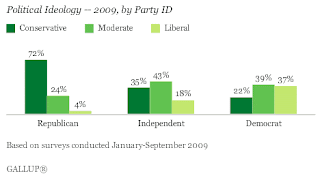When my campaign for Mayor was over, many people suggested I apply for the school committee and Mayor Menino had told me that he was interested in working with me, in particular in regards to our trade school in Boston.The Boston School Committee is an appointed body for the specific purpose of eliminating public scrutiny and input into local education (since education is secondary to the care and feeding of bureaucrats and teachers - in that order). Nevertheless our brave reformer takes the Mayor at his word, and applies for one of two vacancies:
The applications were to be emailed to a Nancy Lo, who works for the City of Boston...
...I made a few calls and left messages to other members of the committee to try and find out if I had made the cut or not. During the course of the work day I heard back from a number of the people on the committee. They were all extremely nice, freely answered my questions and clearly were just citizens who were volunteering and doing their civic duty who had no idea what the rules laid out by the State Law were. They had all been on the committee for years, some up to 10 years. They all referred me back to Nancy Lo who clearly was the organizing and directing force of the committee...
One committee member told me that it is "not a fair process" and that committee members "dare not say anything" because if they disagree with Menino that they will soon be gone. I also took the time to look up Nancy Lo and found out that she has been with Menino for years, previously running the elections department and named by Boston Magazine as one of the most powerful women in Boston. She currently works for the Inspectional Services Department and makes more than $100,000 a year...
That evening I talked to my wife Clara who is infinitely smarter than I about what I should do about these types of things. I clearly could file an Open Meeting Lawsuit which if filed within 21 days of the December 10, 2009 non-public meeting would rescind the action the group took. But what was clear in speaking to the members of the committee is that there was no knowledge that anything they were doing was anything other than their civic duty, unlike the Boston City Council which was willfully trying to exclude the public from their decision making process. I didn't want to drag good, decent citizens into something not of their making. It seemed to make sense that since the Mayor hadn't made his final decision yet to just ask the committee to hold the process in accordance with the State Law.Nancy Lo is one of the Mayor's enforcers, notorious for her contempt for legal and procedural niceties; but that's not the issue here.
The next morning, Friday, I called Dot Joyce again and let her know that I was now convinced that the Open Meeting Law had been violated, probably for at least a decade, but that I'd like to work with the administration to rectify the situation without wasting valuable time and resources. I asked her if she knew the person in charge of this: Nancy Lo. She said she had heard of her, but didn't think she had met her. I told her that I hadn't been able to get in touch with her, but perhaps she or the Mayor could get in touch with her, and let her know that the State Law had not been followed. I let her know I'd been working with the District Attorney on this matter as well.
I spoke with the District Attorney's office again and they agreed that a "do over" that followed the law was probably a reasonable thing to do since no final decision had been taken. They said they would confer and get in touch with the City.
The point is that Kevin McCrea, who ran for Mayor, and before that, City Councillor-at-Large could be so ignorant of the power dynamics of his own city government.
McCrea's concern about the lack of transparency and the Mayor's contempt for the Massachusetts Open Meeting Law ignores the fact that neither is a secret in Boston politics. In fact there are no secrets in Boston politics. Yes, the fix is in but anyone who cares to know can find out the specifics of the fix. Given sufficient time and reasonable organizing skills, a fix can be upended. Mayor Menino's organization is close to nonexistent; it depends upon two things: the political vacuum in the City and the disconnect between activists and the community. What McCrea displayed in his search for political sainthood does nothing to advance anything beyond his ego. In and of itself insignificant, except that he actually has the resources to successfully advance his causes, given less narcissism on his part.
Until activists relearn the arts of political intelligence and precinct organizing, they will be no more than political suppression mechanisms, working on behalf of their opponents. First and foremost of the preconditions for both is knowing what the hell is going on both in government and on the street.


